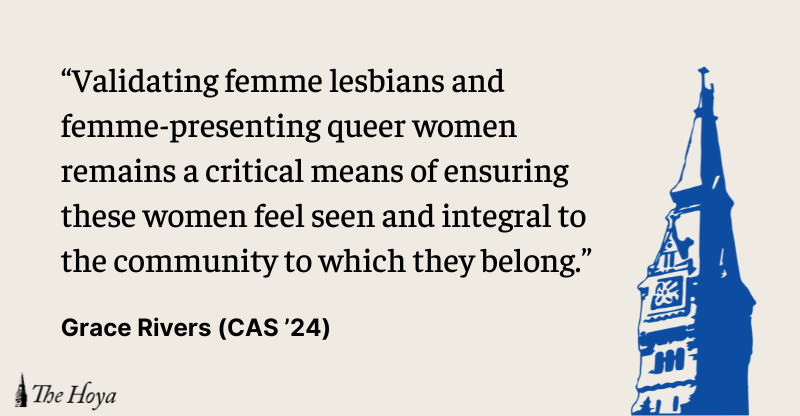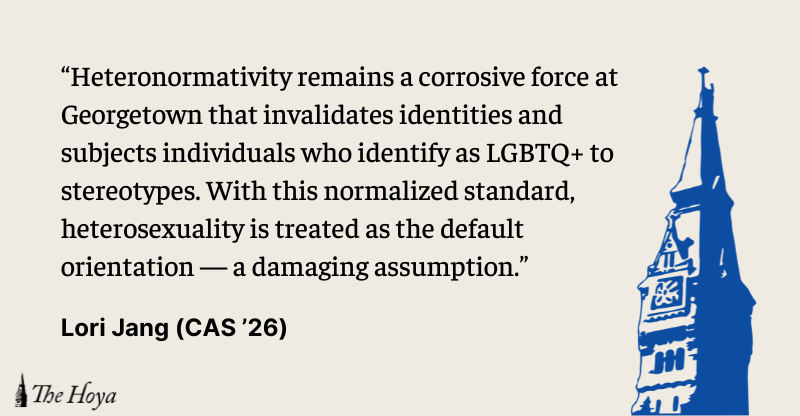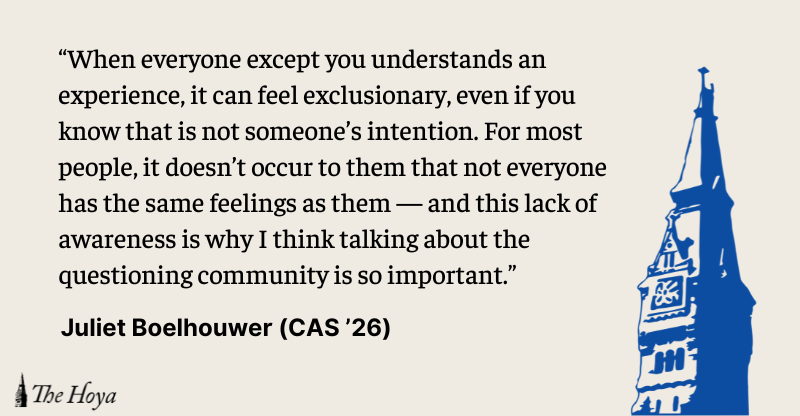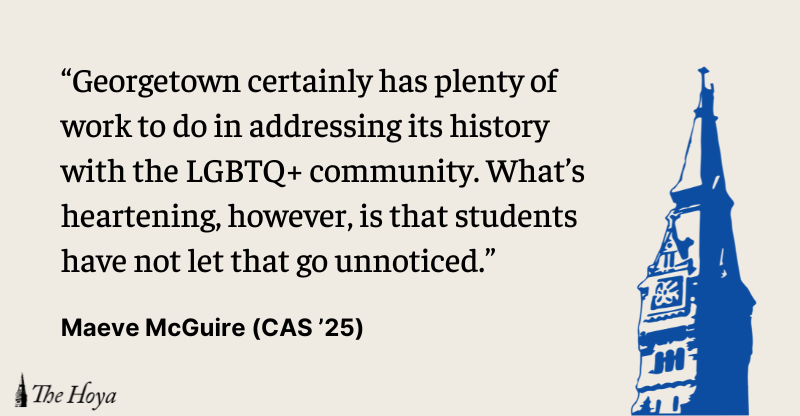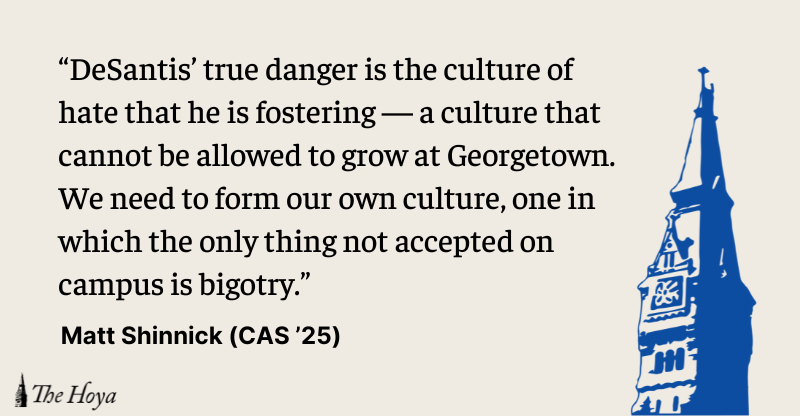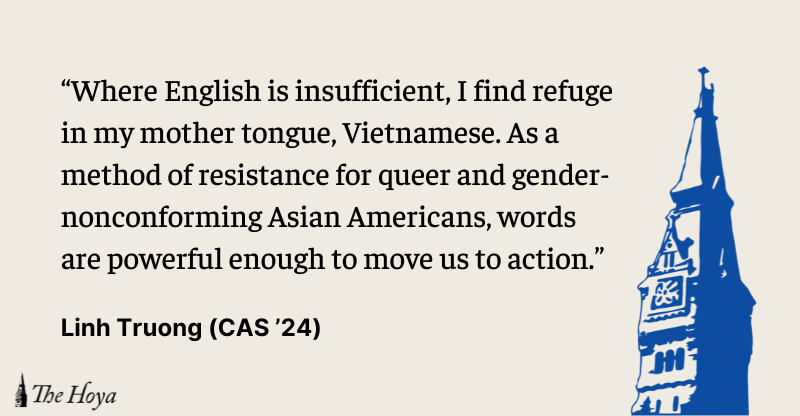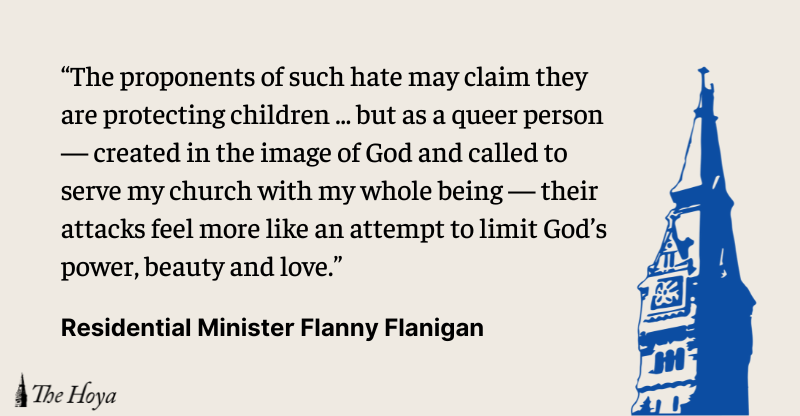“Do you have a boyfriend?”
The dental hygienist asked the question in jest as I sat in the chair awaiting my routine teeth cleaning.
I laughed politely and responded, “No,” to which I wanted to add, “And I never will.”
That wasn’t a conversation to initiate with a stranger, so the latter response remained in my head. The perceivably insignificant moment to the hygienist stood as a stark testimony to the invisibility of my queerness.
On another occasion, as my family ate at a local pizza place, my grandmother inquired if I had met any cute boys in my first semester of college. I smiled hesitantly and simply said, “No.”
My grandmother continued her inquiries about my first semester, but I was already deep in thought, devising a plan in which I could confirm my queerness to her.
As a feminine lesbian who frequently wears makeup and loves a spring dress, I often fall victim to assumptions about my sexuality. My overtly feminine appearance does not conform to the physical stereotypes that society assigns to lesbians. Thus, I find my queerness being erased by those who, despite having good intentions, assume the gender of my partners.
One of the ways that the Georgetown University community can express its allyship to the queer community is by using inclusive language that recognizes that outward appearance does not inherently allude to a person’s sexuality. Validating femme lesbians and femme-presenting queer women remains a critical means of ensuring these women feel seen and integral to the community to which they belong.
Feminine lesbians often confront femme invisibility, a term that refers to feminine lesbians’ queer identities being rendered invisible by their traditionally feminine exterior. Therefore, feminine lesbians often feel they must prove their queerness to be seen as valid.
Femme queer women comprise a majority of the lesbian population of the LGBTQ+ community. A study conducted by the National Institute of Health reported that 51% of queer women surveyed between the ages of 14 and 21 identified as femme in comparison to 43% who identify as butch, a term referring to those whose appearance is more traditionally masculine.
Studies also confirm that feminine lesbians are more likely to experience internalized homophobia — or internalize others’ homophobic sentiments. Feminine lesbians also have lower rates of coming out for fear of society’s sentiment that they are not queer enough.
These higher levels of internalized homophobia contribute to worse mental health and relationship health, along with higher levels of substance abuse. The implications of this femme invisibility are far too dangerous to go unnoticed.
Femme lesbians and femme-presenting queer women beautifully exist, and the Georgetown community cannot neglect the gravity of inclusive language for this population of the LGBTQ+ community.
When inquiring about a woman’s relationship status, regardless of their outward appearance, we can say “partner” instead of “boyfriend” and express interest in their partner regardless of their gender.
These efforts are small but powerful steps that ensure femme-presenting queer women feel valued both on campus and in the LGBTQ+ community at large.
Six months after my encounter with my dentist, at my general practitioner in March this year, my doctor inquired about my relationship status.
“Do you have a boyfriend at college?” he said.
“Here we go again,” I immediately thought.
I responded with the reflexive answer I had employed over the last two years: “No.”
Yet, the doctor, realizing the directness of his language, inquired whether I was dating anyone at college, to which I responded that I had a girlfriend. He asked how we met, how long we had been dating and how I liked her parents and family, all of which seemed like quite simple inquiries.
I seldom receive these questions because people unconsciously assume the gender of my partners.
I am not sure if the doctor realized just how validating this series of questions was to me. I want someone to use inclusive language when inquiring about my relationship status. I want someone to subsequently express interest in my relationship if my partner isn’t a man. I want my queerness to be validated regardless of my exterior appearance.
Really, it can be quite simple.
Grace Rivers is a junior in the College of Arts & Sciences.


